The Earth is doomed. We are doomed. There is nothing we can do and it is not worth even trying.
How easy it is to feel like this! Pushed up against sheer cliffs of despair by the mass of headlines about our world’s environmental dangers, we are squeezed into a narrow ravine of thought. Only think of now and here and, whatever you do, don’t think of future times and the lives of our children, their children and those to come afterwards. The unceasing destruction of biodiversity, the loss of natural habitats, deforestation, desertification, pollution and the most inescapable and insidious of all – climate change; no wonder we find it difficult to think of taking action.
The most serious environmental dangers challenging life on Earth, global in extent, have profound implications for humanity and the lives that we lead. While we can take action as individuals to help, these have to be tackled at a national and international level for substantial progress to be made. Yet there is one serious environmental problem that is easy to tackle, where progress can be made right now and the results are immediately obvious.
 This is litter – the curse of modern living; something that is so ubiquitous we often fail to consciously register it is there. Litter is usually all round us everywhere – a seemingly inevitable by-product of the sublime efficiency of our industrial world culture. Yet there is a growing movement, assisted and inspired by the internet’s rapacity for communication, that aims to face up to this incessancy.
This is litter – the curse of modern living; something that is so ubiquitous we often fail to consciously register it is there. Litter is usually all round us everywhere – a seemingly inevitable by-product of the sublime efficiency of our industrial world culture. Yet there is a growing movement, assisted and inspired by the internet’s rapacity for communication, that aims to face up to this incessancy.
This is not, by any means, to suggest that litter is a trivial and unimportant challenge. Most obviously, litter is unsightly and spoils views and vistas that might otherwise let us soar with inspiration. It’s difficult to let yourself go and feel at one with the beauty of nature if drink cans, chocolate bar wrappers and packets for snacks are scattered everywhere.
At a human level, a litter blight in an area has been shown to be linked to increased levels of crime. For instance, a study by Keep Britain Tidy in 2014 showed that areas with poor levels of cleanliness were associated with criminal activity and social disorder. Conversely, places with low levels of litter, fly posting and graffiti were also those least at risk from crime. It seems that tackling litter can lead to changes in the human environment.
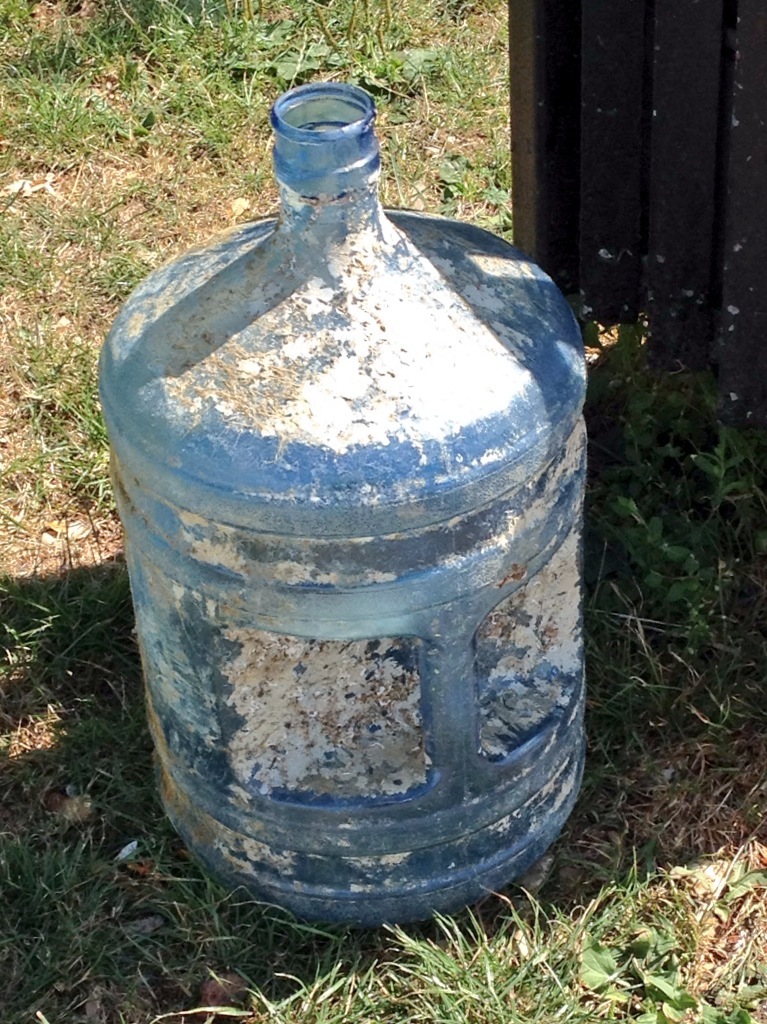 As an environmental issue, litter can have devastating effects on wildlife. There have been videos and photos of turtles with plastic forks and straws stuck in their noses. A dramatic case is that of Peanut, a red-eared slider turtle, who became stuck in a six-pack can binder as a youngster and grew up deformed as a result. Not only did this affect the turtle’s internal organs, it would have also made her more vulnerable to predators as it affected her mobility. Similar cases involve pelicans, albatrosses and other sea birds. Recently, thirteen sperm whales that died after becoming stranded on a beach in Germany were found to have stomachs full of plastic. Seals can become caught up in old rope, netting or fishing line and drown.
As an environmental issue, litter can have devastating effects on wildlife. There have been videos and photos of turtles with plastic forks and straws stuck in their noses. A dramatic case is that of Peanut, a red-eared slider turtle, who became stuck in a six-pack can binder as a youngster and grew up deformed as a result. Not only did this affect the turtle’s internal organs, it would have also made her more vulnerable to predators as it affected her mobility. Similar cases involve pelicans, albatrosses and other sea birds. Recently, thirteen sperm whales that died after becoming stranded on a beach in Germany were found to have stomachs full of plastic. Seals can become caught up in old rope, netting or fishing line and drown.
Fox cubs get their heads caught up in discarded wheel hubs and hedgehogs get their heads trapped in tins. At a smaller scale, lizards can fall into cans left discarded in habitats, never able to get out. Gum, spat out somewhere, can end up matting an animal’s fur, making it difficult for them to move freely in forests and potentially trapping them.
Many of us will have seen videos showing remote islands, where the beaches are strewn with plastic debris from our civilisation. Areas of the Pacific Ocean are, due to a coincidence of currents, floating assemblages of human rubbish.
Our pets can also be at danger from litter. Cats have been caught in drink can binders as well and dogs have had their heads trapped in jars. Animals choke on discarded balloons, sometimes the debris from mass balloon releases.
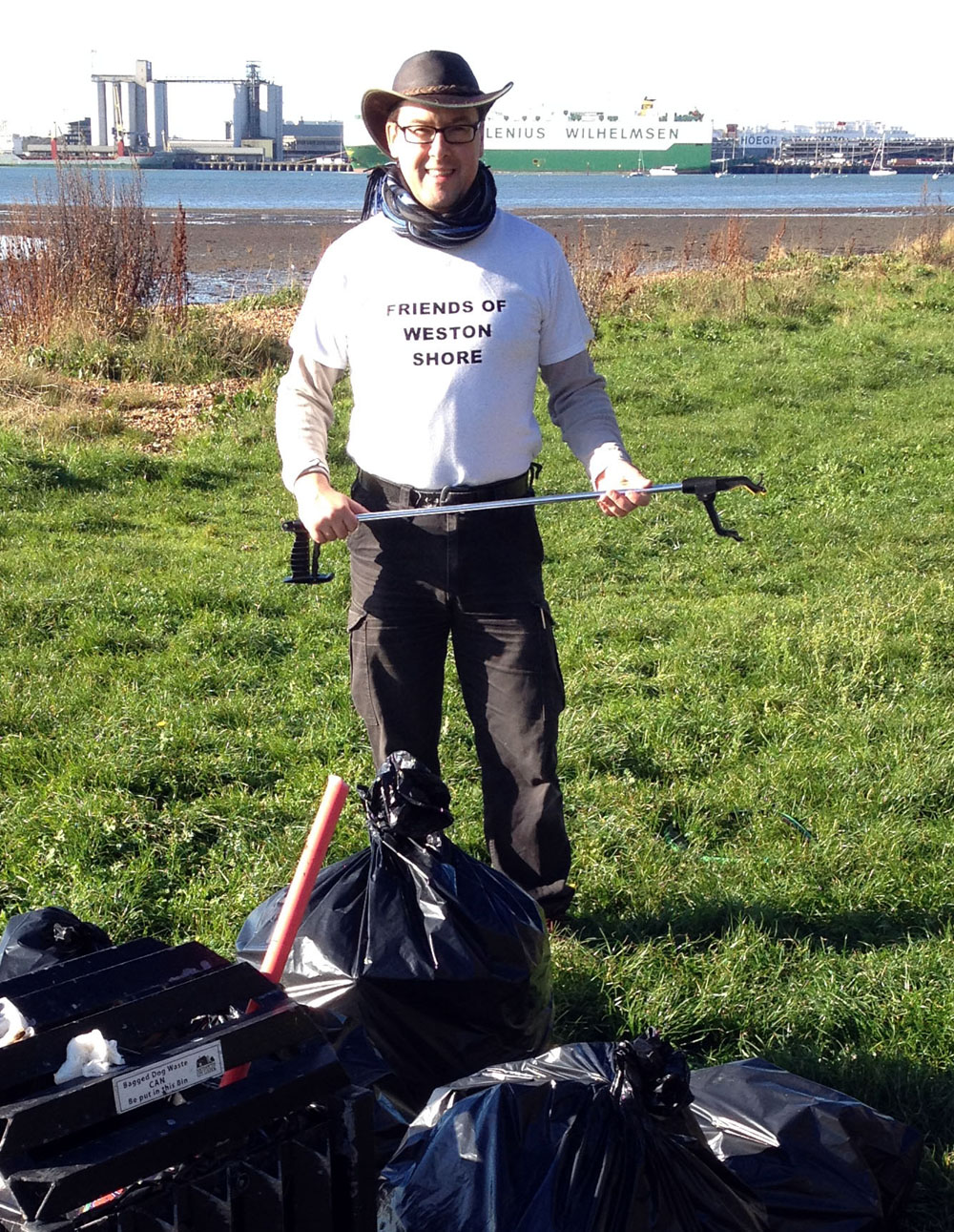 Thankfully, litter’s very visibility has lead to many people wanting to take action. Groups all over the world regularly carry out litter picks and clean ups and it’s no surprise that these have become popular in recent years.
Thankfully, litter’s very visibility has lead to many people wanting to take action. Groups all over the world regularly carry out litter picks and clean ups and it’s no surprise that these have become popular in recent years.
I’ve been part of a group that has for around twenty years carried out regular beach clean ups on Weston Shore in Southampton, England and can attest to how satisfying it is to get involved. A litter pick, either solely or with the help of friends, can quickly transform an area. The results are immediate – simply look back at where you’ve worked and see how much cleaner it is. There are other benefits; fresh air and (possibly) sunshine, a little gentle exercise from walking around, taking in the sights, getting out in your neighbourhood and taking part in the life of your community. It can also be very sociable and a lot of fun!
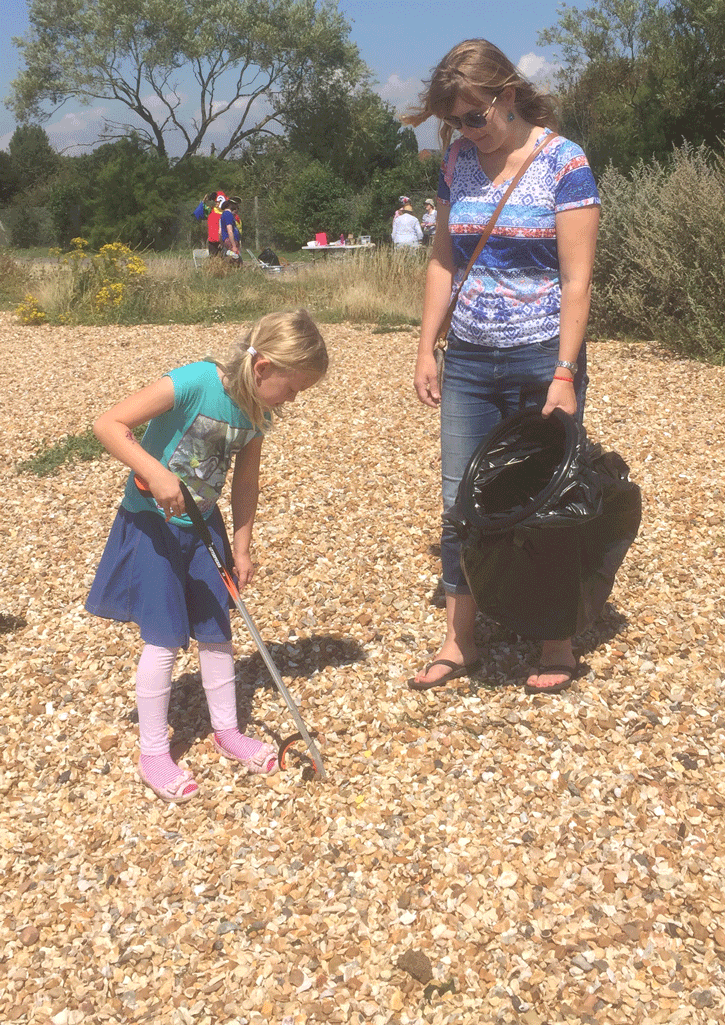 Litter picking as an activity has grown in popularity in the age of social media. It is often a very visual subject for the camera and sometimes can be rather bizarre. Diamond (or more likely, fake diamond) studded dog collars, bits of alarm clocks, toys of all descriptions, innumerable golf balls, parts of cars, the complete range of types of clothing – all have been found on litter picks. This makes for a good subject for instagramming, tweeting and so forth.
Litter picking as an activity has grown in popularity in the age of social media. It is often a very visual subject for the camera and sometimes can be rather bizarre. Diamond (or more likely, fake diamond) studded dog collars, bits of alarm clocks, toys of all descriptions, innumerable golf balls, parts of cars, the complete range of types of clothing – all have been found on litter picks. This makes for a good subject for instagramming, tweeting and so forth.
One group that have really picked up on this idea is Litterati. Focussed on instagram, the idea is to take a shot of litter and then tag it, #litterati. This has become a global hit with, at last count, over 227,000 pieces of litter tagged and cleared up. As a regular beach cleaner, my favourite tag is #brandsonthebeach. So many of our popular brands, Coca Cola, Budweiser, Irn-Bru, Red Bull, and so forth, end up as rubbish on our beaches or in our natural places. Let’s show them how their precious products really end up.
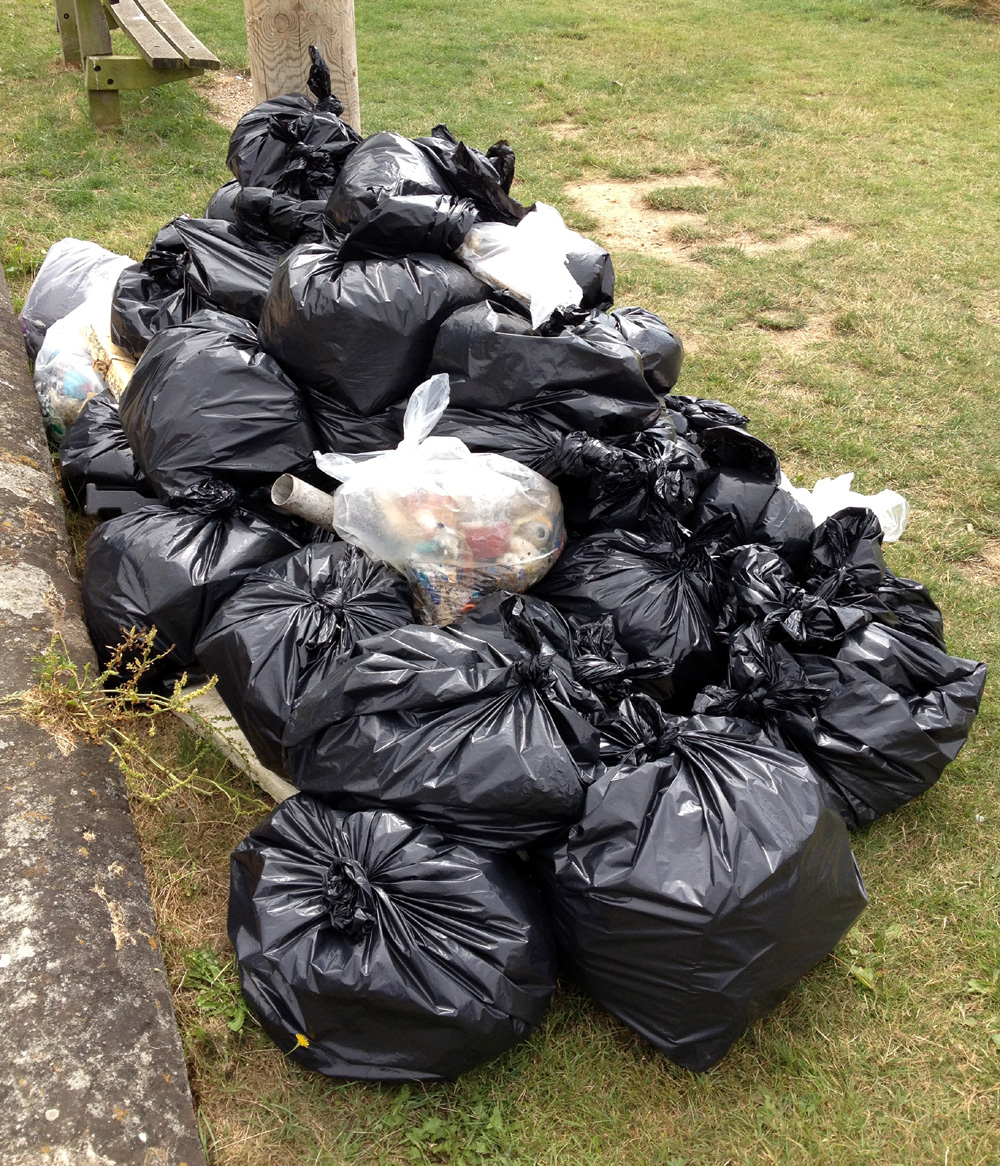 A similar movement is #2minutebeachclean. The idea here is to do a little and often. A two minute clean up really can help and spreading the meme helps more get done.
A similar movement is #2minutebeachclean. The idea here is to do a little and often. A two minute clean up really can help and spreading the meme helps more get done.
To see an area you’ve cleaned up, with just a little effort, is so rewarding. It’s not just good for the planet, it’s good for you too. A wonderful friend of mine has told me how therapeutic and soothing he finds litter picking to be and I believe him. Who knows, maybe there is a similar activity in your local area?
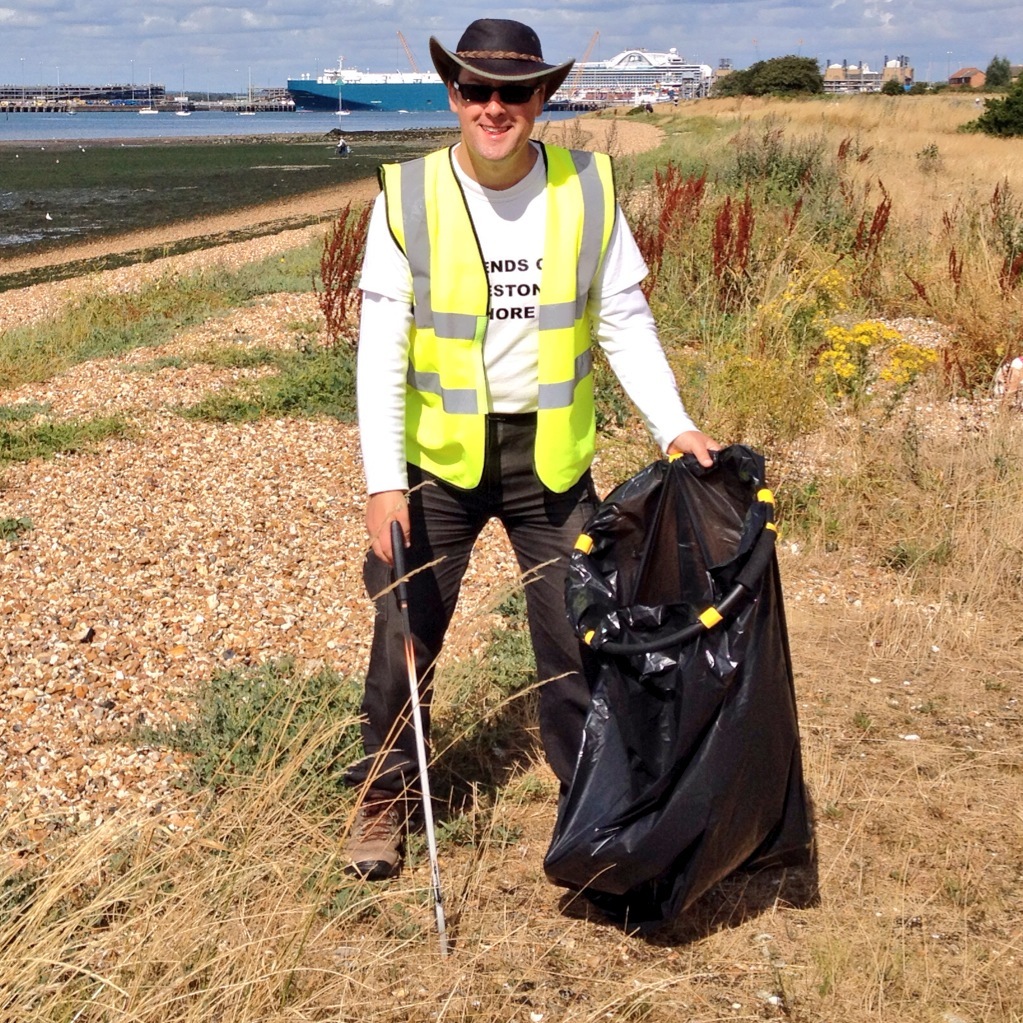 With a sense of achievement from this type of activity, facing up to the greater challenges seems more reasonable. If we can make a difference here and now, maybe making a difference with these more profound difficulties is not so impossible. Just maybe, there is good reason to hope after all.
With a sense of achievement from this type of activity, facing up to the greater challenges seems more reasonable. If we can make a difference here and now, maybe making a difference with these more profound difficulties is not so impossible. Just maybe, there is good reason to hope after all.
